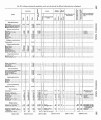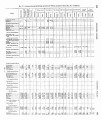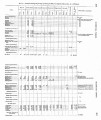| OCR Text |
Show 22 REPORT OF THE COMMISSIONER 0%l'N DIAN AFFAIRS. Upon the question ef compensation, I have no hesitation in repeating the recommendations of the last report of this office, and being about to retire ikom the position which I bold, I can do so without incu~~inthge imputation of any selfish mot?ve. - - The Commissioner 'of Indian Affairs who does his duty faithfully earns a compensation not inferior to that provided for any bureau under the goveru-ment ; the Indian service sutrers constant loss and discredit from the impossi-bility inmany cases of obtaining the right kind of men to acceptits places at the present meagre compensation; and the various employds upon the office-work of the bureau, are the worst paid men under the government. I believe that this government can well afford to pay its responsible employ& a fair day's wages for a fair days work, and that it is true economy to pay them a living compensation in the ratio of their labors and responsibilities. In closing this portion of my second annual re ort, I take pleasure in acknowledging my obligations to the clerical force of tEis bureau, and especially to the chief clerk and the heads of divisions, for their faithful attention to their duties, and the unflagging industry, often beyond regular office hou~sb, y which alone we have been able to accomplish so much, with no increase of our regular number, in a year in which, in correspondence, careful and studied reports xequiring great research through files of nlany years, and in general business, the amount of labor has been nearly, or quite double that of any previous year. I proceed to a more particular notice of the several superintendencies and agencies, refer~<ngfo r details to the accompanying documents: WASHINGTON. The annual report from this superintendency, one of the most important of those in charge of this office, not having arrived, I am unable to do more tbau refer briefly to such matters of importance as have been presented for attention in tbe current co~~espoudeucoef the year. The tribes and bands of Washington Territory are very numerous, and are grouped together in a series of treaties made by governor Stevens in 1354-'55, reservations being provided for them in the central and northwesternpart of the Territory; many small bands, however, whose lands had, for the most part already been taken possession of by whites, in the southwest, between the Uolumbia river and the ocean, were not treated with; nor were there any ar-rangements maae with the tribes in the northeast, near the British line. With the exception of the Yakamas, whose reservation is east of the moun-tains, and who have improvedrapidly under the charge of a faithful agent, and employ6s who make it a matter of conscience to set a good exarnple before the Indians, thme is not much of encouragement thus far in the attempt to civilize the tribes of this Territory. Living along the shores of the bays and inlets which make a large.portiou of the superficial area of the northwestern extreme of the Union, they have been able to procure a livelihood, sometimes scanty, but usually sufficient foi- their simple wants, by fishiug and hunting; and some , of them are very expert fishermen, going some distance out to sea in pursuit of the whale and other fish, from which they obtain considerable quantities of oil for sale. Last year it was proposed to encourage in this trade, the tribe whose reservation is near Cape Flattery, by procuring for their use a small ve8sel. but we are not d v i ~ e das to the result. The presence of United States troops at various posts established in that region has aided very materially in preserving guiet among the tribes, aod it is feared that the general reduction of the force and abandonment of several posts will result in serious damage to the Indian service. A very small ga~~i sounn,d er an efficient coromander, will suffioet o keep the peace ; but if hostilities are once commenced, a small army may find its efforts in vain, since the Indians will not risk a battle, but carry on desultory |























































































